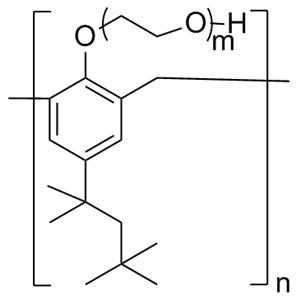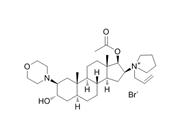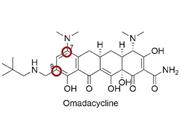Tyloxapol (Triton WR1339) is an alkyl aryl polyether alcohol class of non-ionic liquid polymer, used as a surfactant for liquification, for the removal of viscous and bronchopulmonary secretions. It is also capable of inhibiting plasma lipolytic activity, thereby breaking down triglyceride-rich lipoproteins.
In vitro studies: Tyloxapol is considered a safe stabilizer. In some studies, Tyloxapol has been reported to produce toxic effects in epithelial cells and erythrocytes, to induce apoptosis in RAW264.7 mouse macrophages and NIH/3T3 cells, and to cause lysis in human Jurkat T lymphoblastoid cells. However, these toxic effects do not reflect the in vivo action of Tyloxapol, which is rarely used alone in clinical settings.
In vivo studies: In rats, a single intravenous injection of tyloxapol at 400 mg/kg induces three different phases of changes in plasma lipid levels: an initial rapid linear increase, followed by a relatively more gradual linear increase, and then a slow decrease, compared to the baseline levels. Treatment with Tyloxapol enhanced pulmonary absorption of insulin, improving the absorption of inhaled insulin in a diabetic rat model. In this model, the drug could significantly enhance the hypoglycemic effect of insulin administered via intratracheal instillation without altering LDH activity.

 China
China



